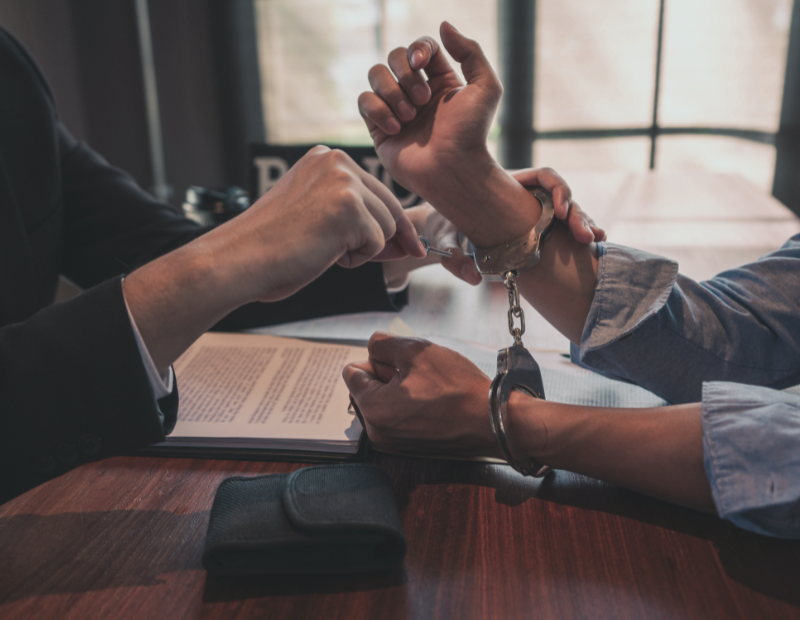The idea of serving time in state prison for a felony conviction can be daunting. However, in some felony cases, the court may offer an alternative to incarceration—felony probation. Understanding how felony probation works, its conditions, and how to avoid a felony probation violation is crucial for maintaining your freedom and successfully completing your probationary period.
What is Felony Probation?
Felony probation, also known as formal probation, is a sentencing alternative that allows a convicted person to serve their sentence within the community instead of serving a prison sentence. Unlike misdemeanor probation, which is typically less restrictive, felony probation comes with strict probation terms that must be followed to avoid incarceration or additional criminal charges.
The probation period for a felony conviction is generally longer and more intensive than misdemeanor probation. It often requires regular probation supervision, adherence to strict probation conditions, and possibly court-ordered treatment programs. Probation officers monitor compliance and submit a probation report on a regular basis to ensure the convicted person is fulfilling all obligations.
Who is Eligible for Felony Probation?
Not all felony cases qualify for probation. The decision is influenced by factors such as:
- The severity of the felony charges
- Whether the crime involved a violent crime, sexual assault, or other serious offenses
- The defendant’s criminal history, including first offense or non-violent predicates
Crimes such as domestic violence, drug-related offenses, and financial crimes may qualify for felony probation, while more serious crimes like murder or aggravated assault may lead to a state prison sentence instead. The most serious crimes are typically not eligible for probation.
Common Conditions of Felony Probation
When a Florida judge grants felony probation, they will set specific terms of your probation that you must follow throughout the probationary period. Common conditions of probation include:
- Regular meetings with a probation officer
- Drug testing on a regular basis
- Community service requirements
- Attending court-ordered rehabilitation or treatment programs
- Paying fines and restitution to victims
- Avoiding further criminal activity
- Restrictions on firearm possession
- House arrest or electronic monitoring, in some cases
Failure to comply with any condition of probation can result in a violation of probation, which may lead to serious consequences, including revocation of probation or jail time.
What Happens If You Violate Felony Probation?
A violation of felony probation occurs when a person fails to meet the terms of probation set by the court. A violation can happen due to:
- Missing a scheduled meeting with the probation department
- Failing a drug test
- Committing another crime while on probation
- Violating travel restrictions
- Failing to complete court-ordered programs
When a violation occurs, a probation officer may report the infraction to the court, leading to a probation violation hearing. The burden of proof rests on the prosecution to demonstrate that the convicted person willfully violated the terms of probation. The judge will determine whether the violation was willful and what penalties should be imposed. Possible consequences include:
- A warning or modification of probation terms
- Additional fines or community service
- Revocation of probation and imposition of a prison sentence
- Serving time in county jail or state prison
How to Avoid a Felony Probation Violation
Avoiding a felony probation violation is essential to successfully completing your probationary period and preventing further legal issues. Here are some key strategies:
1. Understand the Terms of Your Probation
One of the most important steps in avoiding a violation is fully understanding the probation terms. If you are unsure about any conditions of your probation, consult with your criminal defense attorney for clarification. Receiving accurate legal information can prevent unintentional violations.
2. Maintain Regular Communication with Your Probation Officer
Your probation officer plays a crucial role in your case. Missing meetings or failing to check in as required can be grounds for a violation. Be proactive in maintaining communication and fulfilling all reporting requirements.
3. Comply with All Court Orders
If the court has ordered you to attend a rehabilitation program, complete community service, or pay restitution, ensure that you comply fully and on time. Keeping detailed records of your compliance can serve as proof in case of any disputes.
4. Avoid Criminal Activity and Associations
Even being in the wrong place at the wrong time can lead to criminal charges, putting your probation status at risk. Avoid situations and individuals that may get you into trouble, and always follow the law.
5. Seek Legal Advice if You Face Challenges
If you find yourself struggling to comply with a condition of probation, call for legal advice immediately. A criminal defense attorney may be able to request a modification of your probation terms to accommodate your situation. Establishing an attorney-client relationship can help protect your rights and prevent unnecessary legal consequences.
Felony probation offers a second chance for individuals facing a felony conviction, allowing them to serve their sentence outside of state prison. However, the probationary period comes with strict probation conditions that must be followed to avoid a violation of felony probation. Understanding the terms of probation, maintaining open communication with the probation department, and seeking legal advice when needed are all essential steps in successfully completing your probation and staying out of jail.
At the Law Office of Colleen Glenn, we have significant experience helping our clients navigate their felony charges and probationary periods. If you or someone you love has been charged with a felony in Bradenton, Florida, we can help. Contact us today to schedule a free consultation. We can address your questions and concerns and help you protect your rights and avoid a violation.

0 Comments